After four weeks of thriving on only foraged and homegrown food, it’s time to look back and reflect. What have I learnt?
August has taught me some personal lessons, and I’ve reflected on the broader themes highlighted by this project.
Personally, I have thoroughly enjoyed this month.
The importance of planning ahead
I’ve been well fed each day, with tasty food that was easy to prepare.
I’ve been amazed at how quickly I have grown accustomed to a new way of life, planning my walks and bike rides around places where I could pick up some leaves, fruit or mushrooms.
I’ve learnt about several new plants that have become firm favourites: I now use sorrel in most of my meals, and I start every morning with meadowsweet tea. I will definitely not be going back to drinking coffee.
I have also learnt the importance of planning. Since the beginning of the month, my collection of storage jars has gradually increased.
In the natural world, each particular food has a time of abundance.
Harvesting it at this peak time and preserving it, is key to successful supermarket-free living.
If I am to live off foraged and homegrown food all year round (which I’m tempted to do), I will have to be even more savvy to get me through the so-called ‘hungry gap’ of late winter.
Forget turning water into wine, I turned wine into eggs
Beyond the personal, my experiences have also highlighted two broader themes. First of all, the importance of community.
During the past few weeks, I have been able to barter with various people.
I’ve traded homemade wine for eggs, and seaweed for courgettes.
Somebody offered me a round of picking on their allotment in exchange for jam I haven’t even made yet.
Our communities are teeming with fresh food, goods, skills, friendship and honesty – just imagine what our lives would look like if we harnessed all that potential and shared what we had.
We need to think more about sustainable ways to live
Secondly, my experience has brought home the importance of sustainability.
Knowing the riches of the land, I feel intense sadness at seeing yet another tightly packed housing development going up, or an urban desert of grass that gets cut within an inch of its life.
Front gardens that have been turned to concrete.
Just imagine a housing development with smaller houses and larger green spaces, with fruit trees provided for every garden.
Imagine a neighbourhood where the knowledge of wild food is common, and people go out to pick, no more than they need.
Have you been inspired to try foraging for food?
Looking ahead to winter, I’m aiming to live off the land for as long as I can.
The coldest months of the year harbour a surprising variety of mushrooms (Blewits, Oysters, Velvet Shanks and more), and there are nuts and apples.
In the garden I have leeks, neeps and hopefully tatties for Christmas.
My chest freezers are still full of fruit. The blackberry wine is brewing.
I started this project as an ‘awareness raiser’ of our place within the natural world.
To do that, I have shown how much food our beautiful countryside can provide for us, all for free.
All it requires in return, is to be treated with respect.
We need the plants, we need the sun and the rain. We need the bees. Our place is amongst other species, not above them.
I hope I have convinced people of the importance of protecting our wild spaces, our hedgerows, our verges, our rivers and coastal areas.
I hope I have inspired people to engage with the land more.
So, go and grow some tatties, plant a fruit tree, sow herbs on your windowsill, go out there and learn about the bounty that awaits.
Mirjam Brady-Van den Bos is a psychology lecturer at Aberdeen University. You can follow her foraging adventures on her Healthy Forager blog.
And you can donate to her challenge of going all of August eating only foraged or homegrown food in aid of the River Dee Trust here.
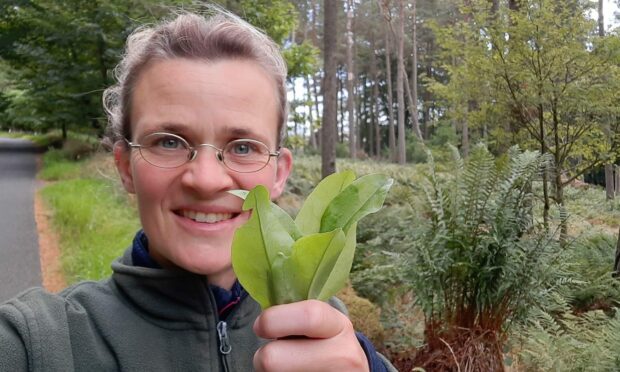
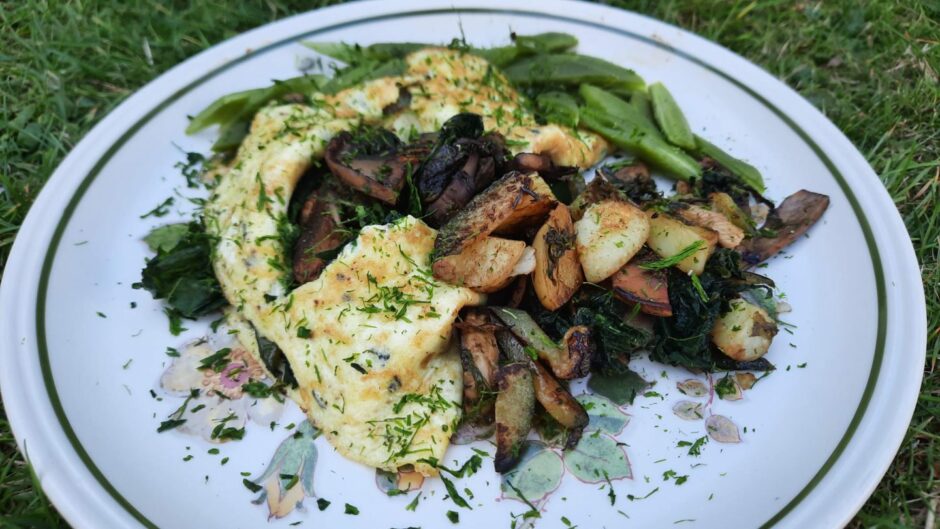
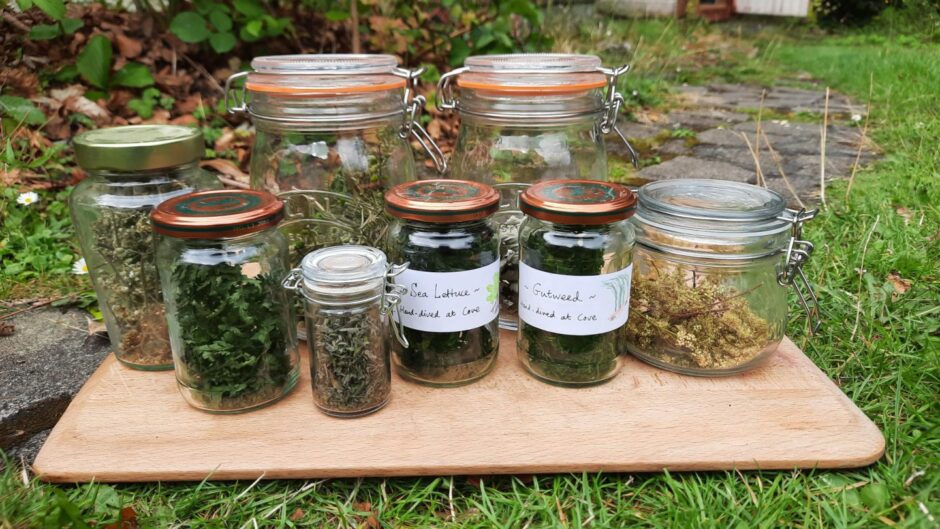
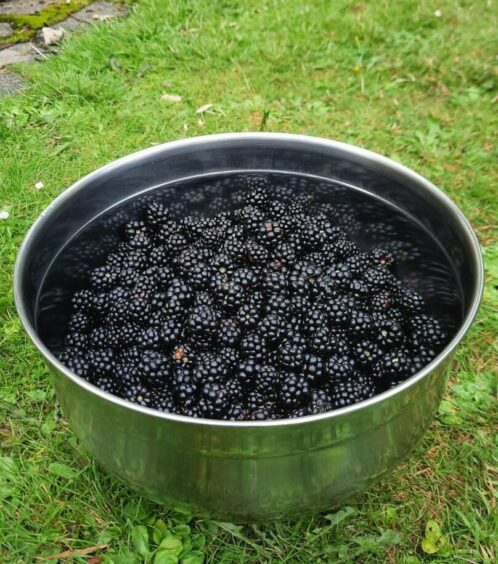
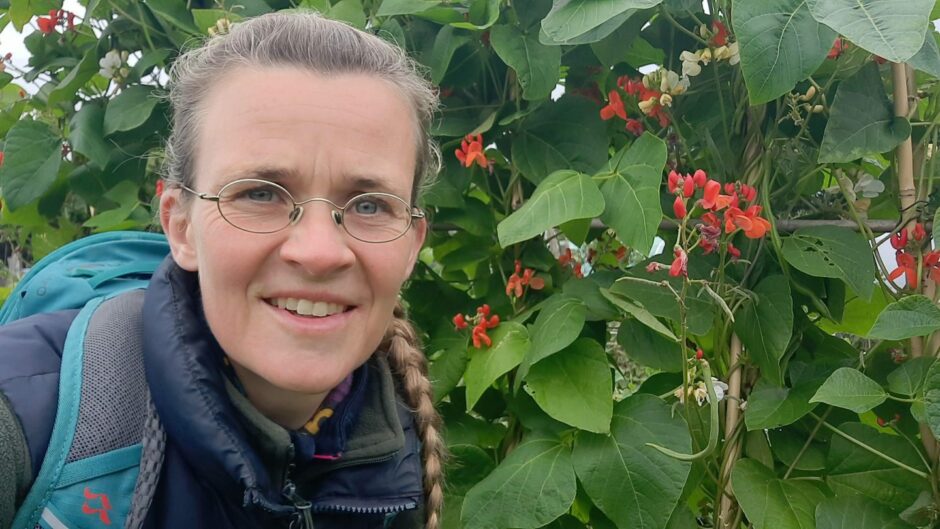
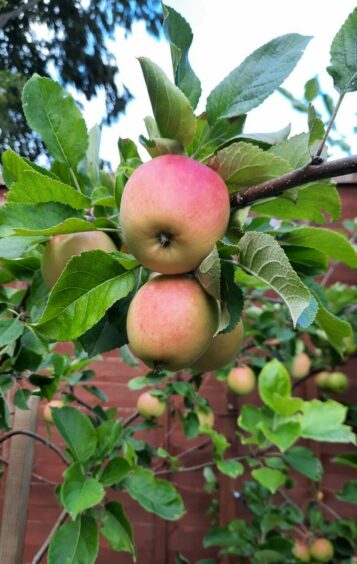
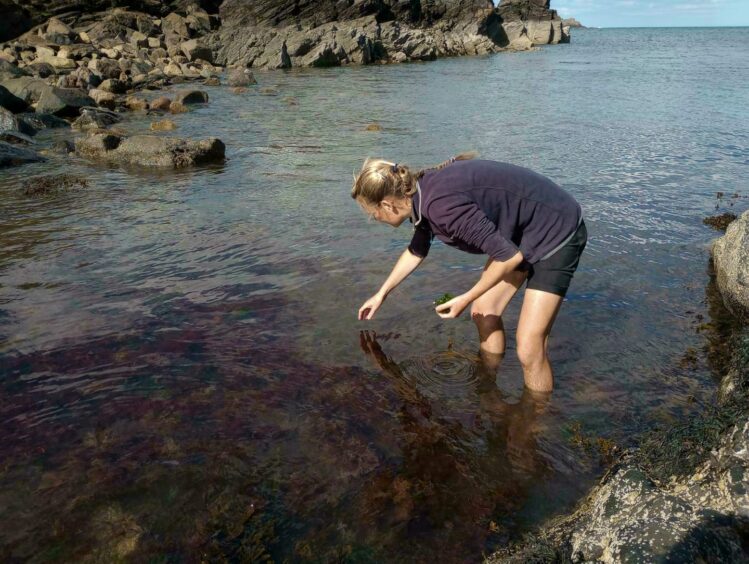
Conversation